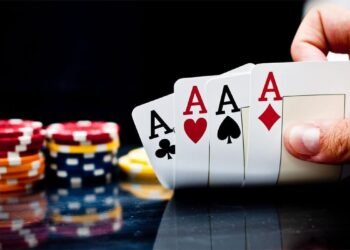Gambling superstitions are driven by tales, urban legends, and wishful thinking. The myth of a “gambling bloodline,” which holds that some people are predisposed to luck and success in games of chance such as situs togel and that this trait has been passed down through generations, has persisted over time.
This article debunks the gambling family myth. We want to know whether some individuals are simply luckier or better at online gaming. We will use historical analysis, scientific research, and personal accounts.
Myth Origins
Before understanding the gambling bloodline, we must explore its cultural significance and history. Gambling has long been linked to destiny, luck, and supernatural intervention. Various cultures attribute chance games’ success or failure to supernatural powers or celestial alignments.
Culturally, inherited luck may be attributed to ancestral spirits, karma, or genetics. History, literature, and popular culture have perpetuated the idea that particular families or lines have a “golden touch” when it comes to gambling, inspiring gamblers to replicate their predecessors’ success.
City Legends and Stories
Anecdotes of enormous gains and “lucky streaks” typically form the gambling family mythology. Some families have tales of forebears who could predict winning numbers, beat the odds, or transform little bets into big wins.
These tales are compelling, but they may involve embellishments, selective recollections, and gamble results. The untrained eye may see a talent or luck pattern that’s really random fluctuation or statistical chance.
Science Thoughts: Nature vs. nurture
Scientifically, a gambling family presents fascinating issues about how genetics, psychology, and environment affect gambling behavior and results. Despite genetic findings that may affect risk-taking and impulsivity, the idea of a hereditary “gambling gene” is yet unproven.
Some studies attribute gambling disorders and problem gambling to childhood, peer pressure, and socioeconomic position, while others attribute them to genetics. The complicated interaction between genetic predispositions and environmental factors makes it hard to identify a “gambling gene” that causes luck.
Chance is subjective, making scientific quantification difficult. Another person may view chance as talent, trickery, or mental flaws on situs togel 88. Humans’ tendency to find patterns and explanations in random occurrences reinforces the gambling myth and frequently creates the feeling of luck when none exists.
Personal Stories and Conversations
Personal narratives and experiences impact gambling luck and success even when scientific data does not indicate a gambling ancestor. Some derive strength, confidence, and optimism from their good fortune ancestry even in uncertain times.
Others may dismiss a familial history of gambling and credit strategy, willpower, or luck for their wins or losses. The story’s multiple perspectives show human psychology’s complexity and belief’s subjectivity.
Methodically Dispelling the Myth
A gambling family myth must be treated with skepticism and critical thinking when there is no proof. Anecdotes and personal stories are powerful, but they cannot prove chance or competence.
A logical approach to gambling recognizes statistical concepts, chance, and unpredictability in anticipating results. Whether playing roulette, poker, or online slots, gamblers must accept that chance does not ensure victory and that the house always wins in the long run.
A scientific approach to gambling based on chances and risk management may reduce superstition and myth. Gamblers may use knowledge, strategy, and self-awareness to make better judgments and increase their chances of success.
Overview Beyond the Fanfare
In the gambling business, myths and superstitions may soothe, interest, or mislead gamblers trying to understand the unpredictable nature of games of chance. Gambling has many timeless appeals. The gambling family myth promises inherited money and luck.
Even if the notion of a family engaged in gambling may persist in popular culture, it’s crucial to examine these myths critically and logically. Gamblers may decrease the impact of superstition on their judgments, develop a healthy connection with gaming, and make better decisions by distinguishing reality from fantasy.
Ultimately, whether or not one buys into the myth of the gambling bloodline, gambling is still a risky and unpredictable form of entertainment where success is decided by skill, strategy, and responsible play rather than luck or family history. May gamblers traverse the intricate terrain of luck and chance with open minds, aware of the lies that conceal hidden realities from the myths that envelop them.























